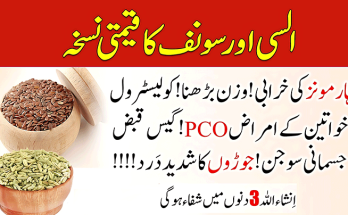
Polycystic Ovary Syndrome (PCOS) is a common hormonal disorder affecting millions of women worldwide. Characterized by hormonal imbalances, irregular menstrual cycles, and the presence of cysts on the ovaries, PCOS can significantly impact a woman’s quality of life and fertility.
While medical interventions are often necessary, the role of nutrition in managing PCOS cannot be overstated. By making informed dietary choices, women with PCOS can potentially alleviate symptoms and improve their overall well-being.

How Foods Impact PCOS:
The relationship between diet and PCOS is complex, but certain dietary patterns can exacerbate or alleviate symptoms. Here’s a breakdown of how various foods affect PCOS:
Carbohydrates: High-glycemic index (GI) carbohydrates, such as refined sugars and processed grains, can cause rapid spikes in blood sugar levels, leading to insulin resistance—a hallmark feature of PCOS. Opting for low-GI carbohydrates, such as whole grains, legumes, and non-starchy vegetables, can help stabilize blood sugar levels and improve insulin sensitivity.
Fats: Healthy fats, such as those found in avocados, nuts, seeds, and fatty fish, have anti-inflammatory properties and can support hormone balance. On the other hand, trans fats and saturated fats, commonly found in fried foods and processed snacks, can exacerbate inflammation and insulin resistance, worsening PCOS symptoms.
Proteins: Including adequate protein in your diet is crucial for managing PCOS. Protein-rich foods like lean meats, poultry, fish, tofu, and legumes can help regulate blood sugar levels, promote satiety, and support muscle health.
Dairy: Some women with PCOS may be sensitive to dairy products due to their high levels of insulin-like growth factor 1 (IGF-1), which can exacerbate hormonal imbalances. Choosing dairy alternatives like almond milk, coconut milk, or soy milk may be beneficial for those with dairy sensitivities.
Fruits and Vegetables: Colorful fruits and vegetables are rich in antioxidants, vitamins, and minerals, which can help reduce inflammation and oxidative stress associated with PCOS. Aim to include a variety of fruits and vegetables in your diet to reap their diverse health benefits.
Foods for Polycystic Ovary Syndrome (PCOS):
While there’s no one-size-fits-all diet for PCOS, certain foods are particularly beneficial for managing symptoms:
Berries: Berries such as strawberries, blueberries, and raspberries are low in sugar and high in antioxidants, making them an excellent choice for women with PCOS. Add them to smoothies, and yogurt, or enjoy them as a snack to satisfy your sweet cravings without spiking blood sugar levels.
Leafy Greens: Spinach, kale, Swiss chard, and other leafy greens are packed with nutrients like magnesium, which can help improve insulin sensitivity. Incorporate them into salads, stir-fries, or smoothies for a nutrient boost.
Salmon: Fatty fish like salmon are rich in omega-3 fatty acids, which have anti-inflammatory properties and may help reduce insulin resistance in women with PCOS. Aim to include fatty fish in your diet at least twice a week for optimal health benefits.
Quinoa: Quinoa is a gluten-free whole grain that’s high in protein and fiber, making it an excellent alternative to refined grains for women with PCOS. Use it as a base for salads, soups, or stir-fries to add variety to your meals.
Turmeric: Curcumin, the active compound in turmeric, has potent anti-inflammatory and antioxidant properties, which may help alleviate symptoms of PCOS. Add turmeric to curries, smoothies, or teas to harness its therapeutic benefits.
Nutrition Tips for Managing PCOS:
In addition to incorporating PCOS-friendly foods into your diet, consider the following nutrition tips for managing symptoms:
Focus on Whole Foods: Prioritize whole, minimally processed foods over highly processed, packaged products to maximize nutrient intake and minimize exposure to harmful additives and preservatives.
Practice Portion Control: Be mindful of portion sizes, especially when consuming high-carbohydrate foods, to prevent overheating and stabilize blood sugar levels.
Stay Hydrated: Drink plenty of water throughout the day to support metabolism, hormone regulation, and overall health.
Limit Added Sugars: Minimize your intake of sugary beverages, desserts, and snacks, as excess sugar consumption can contribute to insulin resistance and weight gain.
Seek Professional Guidance: Consult with a registered dietitian or healthcare provider who specializes in PCOS to develop a personalized nutrition plan tailored to your individual needs and preferences.
FAQs About PCOS Nutrition:
1. Can fasting help with PCOS?
Intermittent fasting means eating during certain times and not eating during others. Some think it might help control insulin levels and make the body more sensitive to insulin, which is important for people with PCOS who often have trouble with insulin.
2. Are there special pills for PCOS?
While eating well is important for managing PCOS, some people also take pills or supplements to help. One common one is inositol, which can help with insulin sensitivity and menstrual cycles. Another is omega-3 fatty acids, found in fish oil, which might help with inflammation and cholesterol levels.
3. Can managing stress help with PCOS?
Stress can make hormone problems worse and affect how the body handles insulin. So, managing stress might help ease PCOS symptoms. Things like meditation, yoga, or deep breathing can help calm stress. It’s also good to exercise regularly, get enough sleep, and spend time with friends and family. While managing stress won’t cure PCOS, it can make dealing with it easier.
4. Does gut health matter for PCOS?
Scientists are learning that the bacteria in our guts might have something to do with PCOS. When the bacteria balance in our guts is off, it can make PCOS symptoms worse. Eating foods with healthy bacteria, like yogurt or kimchi, might help balance the gut and improve symptoms. But we need more research to be sure.
In conclusion, the foods we eat play a significant role in managing PCOS and promoting overall health and well-being. By prioritizing nutrient-dense foods, managing portion sizes, and seeking professional guidance, women with PCOS can take proactive steps towards better managing their symptoms and improving their quality of life. Remember, small dietary changes can make a big difference in your journey toward optimal health with PCOS.






